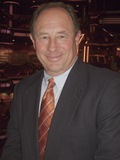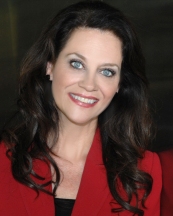I’ve been at my “new” job here as Sport Sales Manager for the Plano, Texas Convention and Visitors Bureau right at three years now. So, my learning curve has been fast and steep.
I fess up to not having a clue the first year I attended the NASC Sports Event Symposium. Fortunately, I had the priceless benefit of falling into a great support group with the Dallas Ft. Worth Area Sport Alliance, where anywhere from eight to ten experienced peers told me what to do and did it with me until I was ready to do it on my own. Newcomers now rely on me from time to time and I am as open and generous with them as my forerunners were with me.
The first year, I was just trying to meet with as many different groups as I could and build a network. By the beginning of my second year, I had learned my inventory and assets and started matching inventory of fields and facilities with events and rights’ holders. I tried to meet with the long list of every group that matched up; all the soccer groups that needed soccer fields; all the baseball groups that needed baseball fields and so on. So, during that second year, I was still spinning my wheels to some extent, but I wanted to build a network and just learn.
I didn’t worry about dates and affiliations too much; I was building a broad network of rights’ holders that may or may not become prospects, clients or event alliances. Conveniently, many people knew more about my inventory than I did. Even if they were not affiliated with the appropriate sanctioning associations, I was learning a lot from them. Often someone from the east coast would tell me more about a soccer club here in North Texas than anyone here at home because they weren’t afraid of stepping on anyone’s toes. Every conference, I still learn a lot about my local groups from competing associations across the country.
Now, I am much more specific in my preparation and meeting requests. I rate my targeted rights’ holders by room nights, ease of association with local clubs and wear and tear on field inventory. Then I make a list of open dates and facilities that I want to fill. This process gives me an annual schedule of sport-specific inventory.
Like most CVB sales people, I have to work around our local leagues since they have first dibs on our fields. I can “pre-empt” one weekend each park and each sport season, but I’m careful about pre-empting because I don’t want to displace my local leagues unless the tournament brings good room night numbers. Additionally, I attend the seasonal league scheduling meetings and ask the league administrators if they have any tournament groups they’d like to host. They don’t often speak up, but it’s just a common courtesy I offer to constantly try to improve my relationships with them. I will eventually need their help in locating umpires and volunteers and it’s good to already know them before I have to make that call.
So, at sport conferences such as NASC, my priority meeting requests go to the open inventory I have to sell. I research the sport tournament groups and find out what tournaments are at least regional or national in name and in deed. By that, I mean, that some tournaments have “southern regional” or “national” in the title of the event, but until I can get team lists that show me the teams do indeed travel to the tournaments and stay overnight, it’s not necessarily a good room-night- tournament to me. Texas is such an active sporting state that a team could play every weekend during their season and not have to travel overnight to find a tournament. I need to find out if there are enough travelling teams to make a solicitation worthwhile and so I start calling and emailing CVBs, housing services and specific hotels to confirm room nights.
This process gives me “target” prospects and I contact with them by email or phone before I ever request a meeting with them to improve my chances of being “accepted” by them. Also, preliminary conversations can often save time by weeding out groups that are not interested or by drawing out information about competing schedules or sanctioning that rules them out. Even if it just rules them out in the short term, they seem to appreciate that I’m trying to save their time and effort as well as mine.
I have at least two major indoor sport facilities for basketball/volleyball and ice sports that I meet with regularly to find out what their preferences might be. What is their “dream” event? What event have they been to recently that caught their attention? Do they want something high-profile or do they just want big numbers of teams? The answers are usually driven by their business model and possibly a board of directors with specific interests. I will add two or three of these “in your dreams” events to my meeting list.
Often these higher-profile events want local clubs to serve as host organizations so they can get a clear picture of the local facilities available to avoid unexpected surprises in that area. Local support assures them of a participatory host committee and access to the local volunteer base.
The other thing I’ve learned about some of the high-profile “in your dreams” events that local clubs and facilities want to host is that these events are not always accompanied by the economic impact that the Plano CVB might require to sponsor such an event. If we decide this is an event that would really be good for the community and an event that offers opportunities for good publicity about the City of Plano, we might be willing to take it on without big room-night numbers.
For example, Plano recently hosted the National College Table Tennis Championships. For the several hundred room nights, we could tell it was going to be a lot of work, but, not a lot of money because they would qualify for Texas Special Event Trust Fund. Plano has a huge Asian population and the largest table tennis club in Texas which gave us a lot of help and we were able to certify thirty new table tennis umpires through our volunteer recruitment and training. It was the first time the tournament had ever had a certified umpire at every table, every match; a big accomplishment by our local table tennis club and the volunteer umpire trainer. Additionally, we got exposure on every major network and newspaper because it was such an odd-ball event. The Asian community was totally turned-on by the attention and being that they drive the excellent reputation of Plano schools and are the lead-draw to bring big corporations to our city, it turned out to be a great event for us even though the economic impact was so-so.
So, that’s my story and here is a list of my preparation activities that I do for NASC:
Ongoing activities to prepare for NASC:
- Keep a constantly changing list of rights’ holders and events I’m interested in and for which we have the facilities. This comes from publications, internet, news outlets and my network of contacts.
- Keep a permanent and constantly changing list of facility inventory and the dates they are available. My best friends in business are the parks and recreation guys that control the inventory I have to sell and local facility owners and their sales people.
- Meet with local sport clubs and facilities to learn the events and groups they want to work with and which dates they have available. I want to bring them what they want to host, given that it has hotel room nights attached.
Preparation that starts a few weeks before NASC:
- Call and/or email the rights’ holders I’m interested in to get an update on their needs and to let them know I would like to meet with them. If I have organization contacts on several levels, I will try to talk to more than one person. Everybody has different information and ideas.
- Call and/or email local contacts at sport clubs and facilities to let them know who I may be able to see at NASC and to confirm they want the business.
Preparation once I get the list of rights’ holders that will attend NASC:
- I will do more research on the top 5 to 10 rights holders on my list. Most of this is checking on room nights and event venues.
- I try to have one last conversation with the would-be hosts (local clubs and facilities) for the events in #1 above, relaying some the details I’ve uncovered most recently and confirming their level of commitment. I also ask them for promotional materials to take with me.
- Request my meetings and order their priority. Often I will request meetings with rights’ holders that might be the primary competitors of the groups I am going after. These are good places to get information.
Last things I do:
- Once I get my list of meetings, I’ll reach out to the rights’ holders I didn’t get a meeting with and ask them for some time outside the parameters of the NASC meeting slots. I’ve never gotten a “no” on these requests.
- I prepare the materials I want to take that are particular to the meetings I have scheduled and the events I am going after: park maps and a list of the assets and amenities associated with them; facility diagrams and photos; contacts at the facilities to make it easy for rights’ holders to reach and initiate contact.
- I’d like to get all the stuff in #2 above on my iPad so I can show rights’ holders and immediately email them the documents they might ask for, but I haven’t done that…yet. The fun starts now!
 Cissy Aberg
Cissy Aberg
Cissy Aberg is Sport Sales Manager for the Plano, Texas Convention and Visitors Bureau. She is a former scholarship athlete with broad experience in sports including sport journalism, youth recreational sport administration and community outreach branding and operation for public sport figures.
 Ron Eifert, CSEE, Sr. Sales/Sports Manager
Ron Eifert, CSEE, Sr. Sales/Sports Manager







